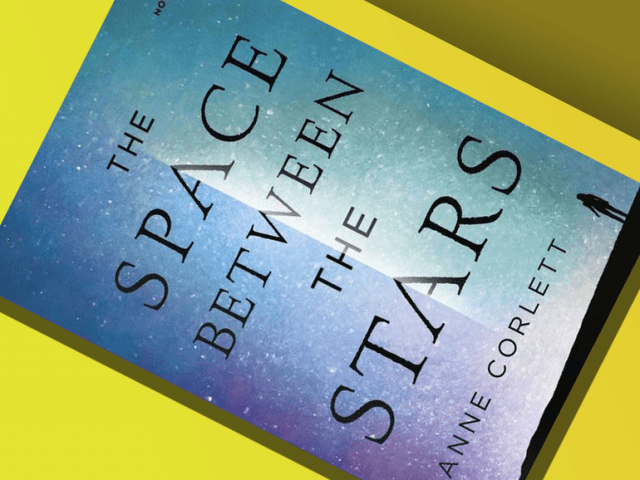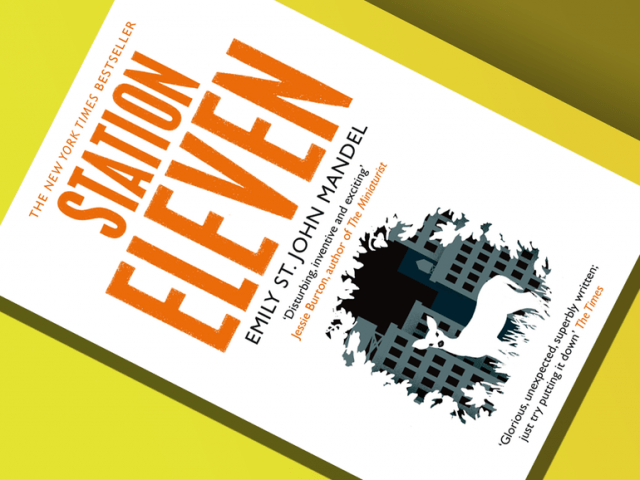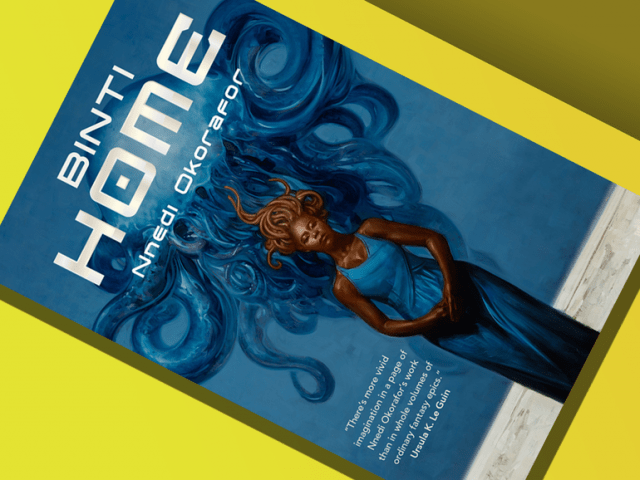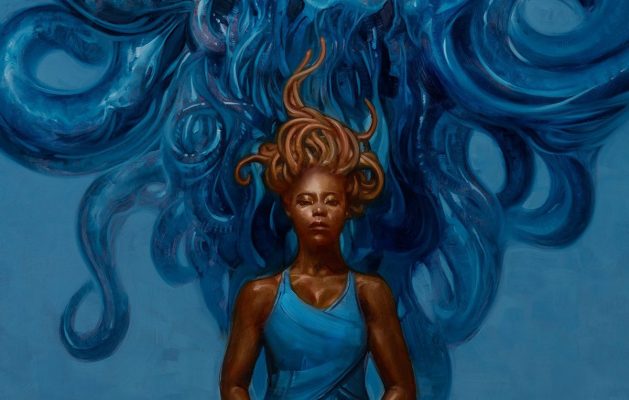
I have recently started to get more into sci-fi. But I’m not full bore just yet. Sci-fi is interesting to me because of the ideas that come out of it, end up becoming our reality years later. Usually, we laugh at how the technology is featured. Because we think – yeah right, that will never happen. But the inventions of the future often come from some of the world’s best authors.
We live in a world where we can read several books in a portable e-reader. You no longer have to cart around a ton of books in your bag when you travel. Which makes reading a whole heck of a lot easier, doesn’t it? That means, you can take all 19 of these books with you on your summer trip. The summer isn’t quite over yet, so there is still time. Maybe not enough time to read all 19, but they are here for you anyway.
This list is focused around more recent novels. Specifically those being released in 2016 or 2017. Some of these are part two or later of a series. You will want to read the first part of those before getting into these, but you can see where I’m going with this.
Enjoy!

The Long Way to a Small Angry Planet (Becky Chambers)
This episodic story follows a fascinating group of individuals who are thrown together by fate and stuck together in a small worm-hole building spaceship called The Wayfarer. Most of the book is retroactive, with each member of the crew slowly revealing the path and motivation that led them to the ship and each other. This book is self published, and is full of memorable quirks, which is underscored by a wry sense of humour.
If you liked Firefly, you’ll like this.

The Space Between the Stars (Anne Corlett)
The protagonist Jamie, is an unlikely survivor of a virus advertised as having a 99.9% kill rate. Jamie soon managers to get in with a small ships captain. And they collect a crew of similarly displaced survivors as they make their way back to Earth. The book is focused more around the lives of the people on the ship, rather than the sci-fi aspect of it.
If you liked Station Eleven (Emily St. John Mandel), you’ll like this.

The Dark Forest (Liu Cixin)
The Dark Forest is the second book from the Remembrance of Earth’s Past trilogy. It’s a brilliant, century spanning sci-fi thriller with a heavy emphasis on astrophysics and psychology in the face of impending doom.
The plot of the first two books looks at humanity’s preparation for an alien invasion that’s still 400 years away. The UN tasks five extraordinary individuals, known as “Wallfacers” to come up with plans in order to keep the Sophons in the dark. The protagonist is a Wallfacer. He is not brilliant and has no idea why he’s been chosen. There are parts that get a little dense, but overall the Dark Forest is a blisteringly original, tender, humorous page turner.
If you liked Hyperion (Dan Simmons), you’ll like this.

Station Eleven (Emily St. John Mandel)
Station Eleven looks at the end of life, thanks to a pandemic called the Georgia Flu. It centres on one perspective from each side of the cataclysm. Both pre and post-flu characters are in the entertainment business. What we get is a tense, slow-burning thriller that looks at the idea of fame and fate. Making this a great beach read.
If you liked The Bone Clocks (David Mitchell), you’ll like this.

From Darkest Skies (Sam Peters)
This novel is a detective thriller about artificial intelligence, memory and the nature of love itself. Agent Keona has lost his wife, and fellow agent to a bomber naked Loki. But she lives on as an artificial personality that Keona keeps hidden. What follows is a gripping, gradually unfolding thriller that tests Keona’s loyalties and ideas of love.
If you liked Black Mirror, you’ll like this.

The Human Division (John Scalzi)
In his fourth book from the Old Man’s War series of five, John Scalzi has just the right touch when it comes to characters ultimately succeeding. The alliance of alien races have been forbidden any further colonization. But there’s a terrorist threat much closer to home. With characters that you can’t help but hate to love, and with plenty of action, the Human Division is the beginning of a fantastic climax to the series.
If you liked Battlestar Galactica, you’ll like this.

Annihilation (Jeff Vandermeer)
“Area X” is an environmental catastrophe near a U.S. Military base. No one knows what has caused the hinterland of freakish flora and fauna. And no one knows what’s going on inside. The book follows four unnamed, professional women sent by the US government to map and investigate the area. Their focus is on a tower, that can only be described as going downwards and not up. The book is told from the biologists perspective, with flash backs to her motivations for joining the volunteer mission at Area X.
If you liked The X Files, you’ll like this.

Down Station (Simon Morden)
Down Station starts in a similar way to “To Your Scattered Bodies Go?” by Phillip Jose Farmer. With a group of characters suddenly placed in a mysterious world that can be an alien planet, the after life or something stranger still. The first chapter is an exercise in impending disaster. What follows is a magical, violent and thrilling adventure.
If you liked Perdido Street Station (China Mieville), you’ll like this.

The Stars are Legion (Kameron Hurley)
This book has a really cool premise. An entirely female society of “near” humans are living aboard these “world ships” at the centre of a war. This book has plenty of bio-tech and intrigue. The characters are deeply flawed, including protagonist Zan, who dominates as part of a larger power play to control the most prized world ship. While difficult to come up with an original sci-fi novel these days, The Stars Are Legion definitely takes us in that direction.
If you liked Dune (Frank Herbert), you’ll like this.

Ancillary Sword/Mercy/Justice (Anne Leckie)
This is a trilogy, not a book with three names. It is loosely about a sentient spaceship with a hive-mind. Which is able to control it’s hundreds of once-human ancillaries simultaneously, wherever they are. When “it” is destroyed in the early stages of a coup, a lone ancillary escapes and swears vengeance. Although the greatest struggle will be dealing with being an individual. The entire trilogy is ambitious, inventive and extremely futuristic.
If you liked Ender’s Game (Orson Scott Card), you’ll like this.

The Weight of the World (Tom Toner)
Have you ever wondered what a far-future interstellar human civilization would look like? Or have you ever wondered about discovering immortality and a “prism” of alien races? Then The Weight of the World is for you. Be prepared for Lycaste, one of sci-fi’s weirdest, most reluctant protagonists in a long time.
If you liked Peter Hamilton’s Commonwealth series, you’ll like this.

The Thing Itself (Adam Roberts)
Two men waste away the days in an Antarctic research station. Tensions between them build as they argue over a love letter one of them has received. One is practical and open. The other surly, superior and obsessed with reading one book, by the philosopher Kant. As the storm brews and they lose contact with the outside world they debate Kant, reality and the emptiness of the universe. It doesn’t sound like it has a lot of sci-fi, but Roberts has created a fast but mind expanding story that is both a great piece of entertainment and a hugely smart and original novel. And yes, you still get aliens.
If you liked The Heart Goes Last (Margaret Atwood), you’ll like this.

Empire Games (Charles Stross)
Empire Games primarily follows Rita Douglas, an unassuming woman who is suddenly recruited by a secret US agency to become a time and dimension hopping spy. She becomes involved in a tense battle against a paranoid parallel-America. No one does near-future, quite like Charles Stross and Empire Games is a wild start to the new series.
If you liked Dirk Gently’s holistic Detective Agency, you’ll like this.

All the Birds in the Sky (Charlie Jane Anders)
Two teenage outcasts struggle with their identities and their infuriating families. This sounds pretty normal. Except one builds time machines and super computers, while the other is a witch who can talk to animals. Ten years later, they meet again in San Francisco and try to make sense of their unraveling world. In this book AIs play matchmaker and abandoning earth through a wormhole seems like an option.
If you liked His Dark Materials (Phillip Pullman), you’ll like this.

Binti: Home (Nnedi Okorafor)
This novel is about a girl name Binti, as the title suggests. What the title doesn’t suggest is that this is an afro-futuristic novel. Binti is a young space-math genius and is the first of her entire clan to leave their home planet in pursuit of a university education and some galactic exploration. Of course, things quickly take a turn for the tragic, and the young girl has to grow up much faster than she’d anticipated. Nnedi Okorafor mixes sci-fi with deep themes of nature and family, along with weird aliens and culture shock. You should also read this because George R.R. Martin is going to be adapting this into a TV series.
If you liked Dr. Who, you’ll like this.

Raven Strategem (Yoon Ha Lee)
Raven Strategem improves on the book Ninefox Gambit, which is the first book in the series. This book is packed full of fantastic battles, weird technology and inter-empire machinations. Along with a caste-based interstellar society whose tech is powered by a metaphysical calendar, this book has it all. Including Hexarchate, an insane traitor general making this an exciting new voice in military sci-fi.
If you like any kind of military space opera, you’ll like this.

Under the Skin (Michael Faber)
Under the Skin will likely turn you into a vegetarian. The book is written from the point of view of a mysterious female driver whose job involves picking up male hitchhikers, incapacitating them, and delivering them to a farm. You’re fed small pieces of information with little to explain what’s really going on. The movie Under the Skin, starring Scarlett Johansson is loosely based on this novel. The more you read, the more you begin to piece together and unravel the deeply disturbing mystery that lies beneath the surface.
If you liked Moments of an Explosion (China Mieville), you’ll like this.

Nemesis Games (James S.A. Corey)
This grand, far-future space opera is full of big characters and even bigger action scenes. This is the fifth book in a series of nine and is a John Scalzi-esque combo of intergalactic intrigue, likable misfits and plenty of post-colonial tension between different Earthling factions. The human asteroid colonies and cities also feel particularly believable, rife with petty gangs and poverty without feeling dystopian.
If you liked Star Wars, you’ll like this.

Occupy Me (Tricia Sullivan)
Tricia Sullivan marks a return to sci-fi with the story of a muscular angel, whose unruly wings threaten her air steward disguise. Pearl works for the Resistance, an organization of covert kind acts, but she has no idea who she is. Which only adds to the confusion. Most of the time the reader hasn’t the foggiest of what’s going on, who to trust or where they’ll go next.
You can only admire the alarmingly accommodating vet sidekick and presume that a locked suitcase is an entrance to a higher dimension. Yet somehow, among all the animalistic chaos of tangled scrapheaps and prehistoric jungles, are lines that beautifully sum up the human condition.
If you liked Down Station (Simon Morden), you’ll like this.



